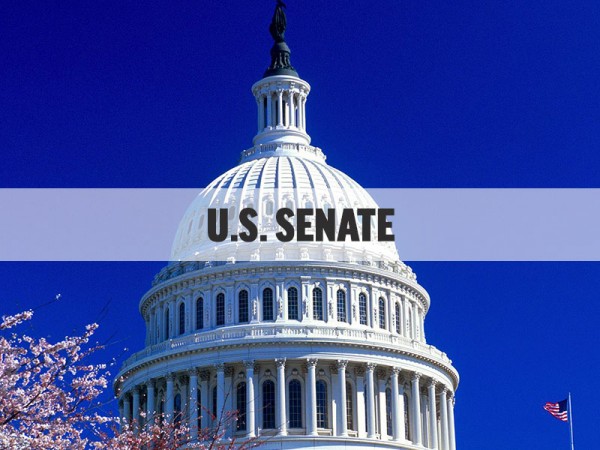ATLANTA - Georgia's budget misery is only expected to grow worse next year. But there has been no real talk among the leading candidates for governor of tax increases to fill what could be another $1 billion budget gap. Instead, GOP contenders have been traveling the state talking about the taxes they would cut.
Two candidates have staked out a more extreme position than most: John Oxendine and Karen Handel want to eliminate Georgia's individual income tax - the state's single largest chunk of revenue. Nathan Deal and Eric Johnson have expressed skepticism about the idea, which is popular with tea party activists and fair tax supporters, who may be a powerful voting bloc in a GOP primary.
Tossing out individual income tax collections would rip a giant hole in the state's tattered balance sheet. Individual income taxes brought in about $7.8 billion to Georgia coffers in fiscal year 2009 - roughly 50 percent of the state's total tax collections.
Neither Oxendine nor Handel has said specifically how they would fill that hole, arguing it would take study. But it would almost certainly require higher sales taxes and perhaps taxing services - like haircuts and lawn work - that are currently exempt.
Oxendine, in particular, has been out front about halting Georgia's income tax. He's featuring the proposal prominently in his television advertisements as part of his "Contract With Georgia."
But pressed on the specifics, Oxendine said the changes wouldn't happen overnight.
Oxendine said he favored a consumption-based tax because it's based on choice.
"You choose whether to engage in commerce," said Oxendine said. "A tax on direct income punishes you for success."
Oxendine said some of the money could come from removing sales tax exemptions or possibly broadening the sales tax base. Some, but possibly not all, of the lost income tax revenue would need to be replaced, he said.
Handel also said she supports eliminating the state income tax but is also short on the details of how such a plan would work.
Spokesman Dan McLagan said she would push the plan "as part of a comprehensive tax overhaul initiative that she will work with state and local leaders to craft."
Handel, of Roswell, is the former secretary of state and has been less vocal about her support for abolishing the state income tax. The proposal didn't make its way into a recent mailer sent by her campaign.
One thing is for sure: the issue plays well with some conservative voters in Georgia.
"That's something that really appeals to our members," said Debbie Dooley of the Atlanta Tea Party Patriots.
Georgia is ground zero for the fair tax movement, which advocates replacing the federal income tax with a consumption tax. And while the fair tax movement does not address doing away with state income taxes, many members would be happy to see it disappear, said Lloyd Newsome, state director of Georgia's Fair Tax chapter.
Seven other states - Alaska, Florida, Nevada, South Dakota, Texas, Washington and Wyoming - do not tax individual income taxes, according to the National Conference of State Legislatures. Tennessee and New Hampshire don't tax active income but do tax inheritance and dividend earnings, according to NCSL.
Deal and Johnson are both pushing tax-cutting platforms but have shied away from calling for the outright elimination of the state income tax.
Deal, a former congressman from Gainesville, wants to reduce the corporate income tax and eliminate the state marriage "penalty" tax. He says his plan is the only one that has been scored by the nonpartisan Tax Foundation.
Deal said pushing to eliminate the state's income tax without a clear idea of where the money to replace it will come from is "somewhat irresponsible."
"It sounds good but that doesn't make it the right thing to do," he said.
Johnson, a former state senator from Savannah, is a supporter of reducing the state income tax but is skeptical that the state can absorb the hit of erasing it, said his spokesman, Ben Fry.
Johnson also wants to wipe out the state sales tax on energy used by manufacturers, which he maintains would spur business growth.
U.S. Rep. John Linder, who wrote a book about the fair tax, said eliminating the state income tax is a lot tougher than many people think.
"I think people ought not be campaigning on a cliche," said Linder, who has endorsed Deal.
Kelly McCutchen, of the conservative-leaning Georgia Public Policy Foundation, said he likes the idea of eliminating the state income tax but questions whether it's feasible without boosting the sales tax in Georgia to levels that would make the state noncompetitive with its neighbors.
"It would be very, very hard," McCutchen said.
Others said the plans would wreak havoc on the state's already shaky finances.
"This is an idea that is very radical," said Alan Essig of the Georgia Budget and Policy Institute, a nonpartisan think tank.
"You are talking about shifting the tax burden to sources of income which are far less reliable."
Tuesday
July 1st, 2025
11:03PM

















